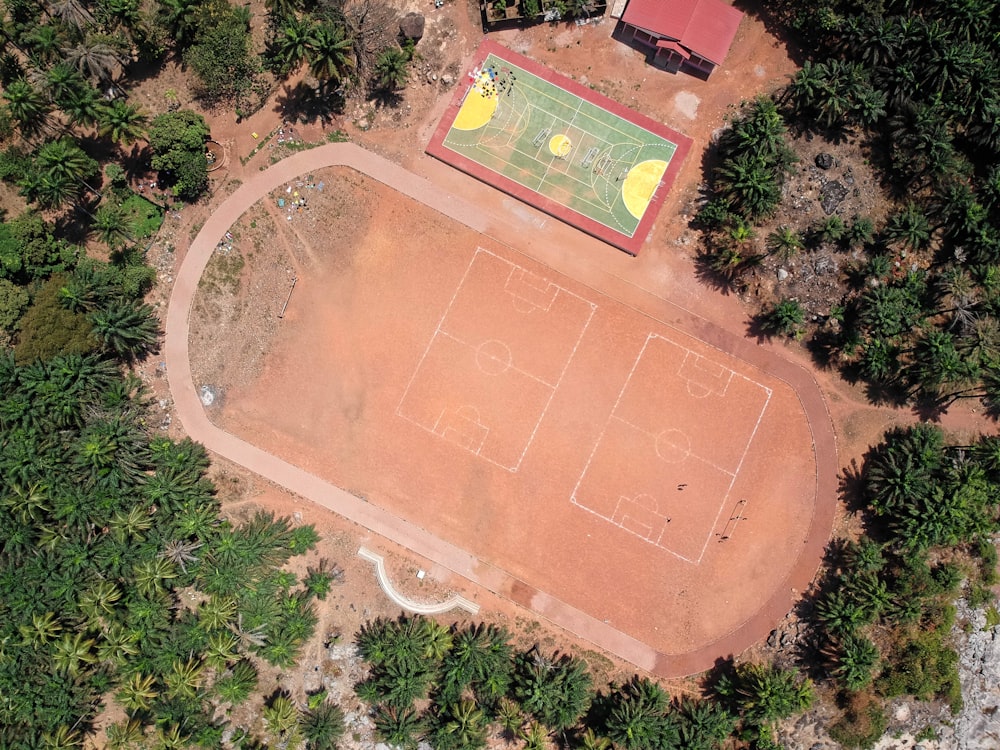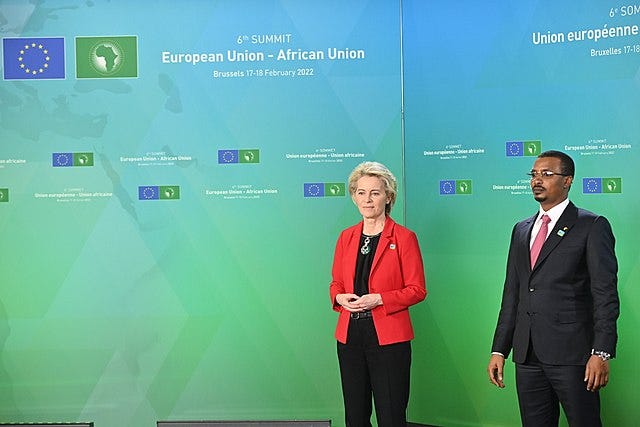🔅 The Dubious Co. Buying Millions of Hectares in The Name of Carbon Credit
Plus: Celebrating Simon Nkoli, Mario Macilau's Photos, Madagascar's Heatwave, and Sustainable Aviation Fuel in Africa.
Photo of the day
Iles de Los, Guinea
Money Matters
🟢 Nigerian SE: 71,052.85 (+0.07%)
🟢 Johannesburg SE: 75,438.71 (+0.90%)
🟢 Ghana SE: 3,195.62 (+0.05%)
🔴 Nairobi SE: 91.64 (-0.12%)
🟢 US S&P 500: 4,556.62 (+0.41%)
🟢 Shanghai Composite: 3,061.86 (+0.60%)
South Africa: Diamonds and Wage Deals | After some tough talks, De Beers and the National Union of Mineworkers have finally reached a wage deal for employees at the South African diamond operations. Workers will receive a 7% increase in 2023 and 6% in the following years until 2028, bringing the minimum entry-level wage to 17,630 rand per month. The deal also includes participation in employee share ownership plans. This is a relief for both parties, as negotiations took place during challenging market conditions for the diamond industry. Industrial action was previously threatened, which would have disrupted production at De Beers' new $2.3 billion underground Venetia mine.
*Data accurate as of the close of markets across the continent
Brief & Bright: Africa's Top Five
Dubai's Carbon Credits: A Not-So-Blue Deal for Africa
A Dubai-based company called Blue Carbon has been signing deals left and right with African countries to produce carbon credits and sell them to big polluters. They've already snagged swathes of land in Liberia, Tanzania, Zambia, Zimbabwe, and now Kenya, where they've got their sights set on "millions of hectares" for their carbon credit production. And get this—they were only founded a year ago and have no experience managing carbon offset projects. But don't worry, their CEO seems super connected to the powers that be in the UAE royal family. Critics are increasingly vocal about the efficacy of carbon credits, and on the ground in Kenya, there's a real risk that this deal could displace local communities; do millions of uninhabited hectares exist in the country? The UAE is positioning itself as the big boss of the African carbon market, and an Emirati coalition recently committed $450 towards carbon offsets in Africa. Still, experts say this type of financing isn't actually helping the climate.
Somalia Joins the East African Community
After three decades of war, Somalia has finally been accepted into the East African Community (EAC). President Hassan Sheikh Mohamud says it's a "beacon of hope" for his country. Member countries of the EAC had not been too keen on letting Somalia in, citing concerns about security (it has been in conflict since 1991 and many parts of the country are controlled by the jihadist group al-Shabab) and corruption (it ranks last on Transparency International's list). But President Hassan pulled out all the stops, even pointing out Somalia's long coastline (3,000 km) and potential for offshore resources as well as access to the Arabian Peninsula. Looks like the EAC simply couldn't resist the allure of that. Some people on X (formerly known as Twitter) are celebrating the decision, while others are worried about inheriting Somalia's challenges, especially now that borders are open and people can theoretically move freely within the EAC. With a population of 17 million, Somalia adds some serious numbers to the EAC, which now counts almost 300 million people.
Oscar Pistorius Get Parole
After being denied parole last year, Oscar Pistorius, the double-amputee Olympic runner who killed his girlfriend in a shocking incident, has finally been granted parole. He'll be released from prison on January 5th, but will be closely monitored for the next five years. He's also not allowed to leave Pretoria without permission, has to attend anger management and violence against women programs, and will have to do some community service. Pistorius, who is now 37, was once a beloved athlete, but that all changed when he shot his girlfriend multiple times through a bathroom door, claiming he thought she was an intruder.
Celebrating The Life of Simon Nkoli, South Africa's Anti-Apartheid and Gay Activist
Simon Nkoli may have passed away 25 years ago, but his legacy lives on through an opera inspired by his life. Nkoli was a key figure in the fight against apartheid as well as being a pioneer for LGBTQ+ rights in South Africa, helping to enshrine them in the country's constitution. At the time, however, anti-apartheid activists shunned Nkoli for being openly gay, facing prejudice even when they were locked up together in prison (he was incarcerated for four years on treason charges). But Nkoli didn't let that stop him from living his truth and fighting for justice. The opera in his honour, aptly titled "Vogue Opera," tells his story through a mix of classical music, hip-hop, and dance, showcasing his personal struggles and triumphs. And while South Africa may have made strides in LGBTQ+ rights (it is one of the few countries in Africa where same-sex relations are legal), the creators of the show hope to take it on a world tour to shed light on the ongoing discrimination faced by the community in other parts of the continent. As one of the show's writers and rappers put it, "If there isn't social buy-in, we're not done."
Chad's Brutal Crackdown, and Amnesty for the Killers
In 2022, protests broke out in Chad against interim President Mahamat Idriss Deby Itno's attempt to extend his rule. The government responded with a brutal crackdown, leaving at least 50 people dead (although human rights groups say the number is closer to 300). Over 600 people were arrested and sentenced in mass trials, but now the military-led government has issued an amnesty to the security forces responsible. The amnesty is part of a deal signed with the opposition leader to foster national reconciliation, although not everyone in the opposition agrees. President Deby took over power from his father in 2021 and promised to return it to civilians through elections, but then extended his rule by two years, sparking the protests. The government has promised to announce when it would hold free elections in December and move towards civilian rule.
Food for Thought
“He who's destined for power does not have to fight for it."
— Ugandan Proverb









